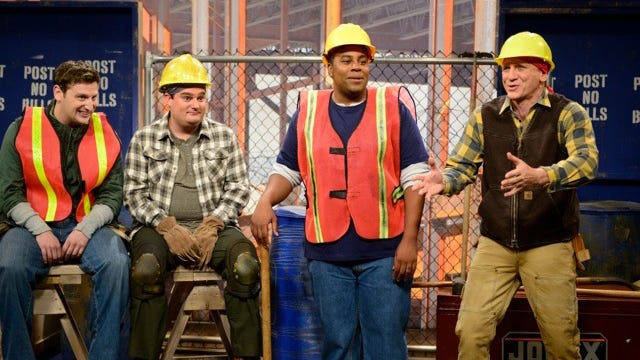Toxic masculinity and why male construction workers are the way they are.

I’ve been in or around the construction industry for a long time — for over 20 years. I come from three generations of men being in construction in some facet: my grandfather, my father, my uncles, all my male cousins, and my brother — they all do something slightly different within the business. From administrative work to job sites, my family is all over the industry. I grew up with a deep and direct connection to construction workers and I did whatever I could to stay out of the industry.
Growing up, if business wasn’t going well, neither was the family dynamic — and in the New York City construction market, growth is always happening so business is never “going well” (well enough to at least plateau and enjoy the fruits of labor). All my family members being so closely tied together made for high tensions often and for clashes to happen frequently. If that dynamic wasn’t happening, my family members would detach from each other, especially around holidays.
As I grew up with this family dynamic, I did what I could to stay out of that high-stress construction industry. I’d help out in the yard when they asked, and occasionally worked full time for several months. But generally, I went out on my own to live out my passions and build a career elsewhere. In my time away from construction I traveled a lot, learned about myself and why I approached life in the ways that I did. As I learned, I dissected my family dynamic and also the other families I grew up with that had several family members in the industry.
///
many of the men in the construction industry had an absent father
What I learned observing the generations of men in the construction industry, inside and outside my family, is that most of these men grew up without their fathers building relationships with them due to long hours required by their fathers’ careers. Fathers and sons would occasionally see eachother on off hours, at the son’s ball games, and during holidays — but many of the men in the construction industry had an absent father. I myself experienced this as a young boy, and over time I discovered how challenging it made my childhood.
Historically, connected families have been built over centuries, so deep down these boys (now men working in the construction field) want relationships with their fathers. They’d eventually see an avenue to connect with them by jumping into the same career path or industry. The subconscious thought process is this: “If my dad is going to be at work all the time, why don’t I jump in to spend more time with him?”
During my time in the industry, I have experienced countless father/son teams on jobsites: both smoking, chatting, working together on a project, even performing some teamwork. The conclusion is thus: these boys choose to be pulled into the construction industry with a loving intention of connecting with their fathers, then both eventually get put on separate jobs and work sites, they are scheduled different hours, and so on — then the opportunity for building a relationship that was there, is now gone. The heartbreak is that by the time this scenario happens, the sons are so glued to the industry, are making a decent living, and are looking to start a family of their own. Unfortunately, after the schedules change and fathers and sons are put on different jobs, the next generation has a father who is rarely home — and the only way that generation can see a connection being made with their father is by working in the same industry. So the cycle continues.
///
This life-dance is why many male construction workers are plagued by toxic masculinity: Lots of “boys” looking to genuinely bond with their fathers who end up becoming their absent fathers. With that, there’s a maturity level that establishes respect and awareness that is never reached in life or on-the-job because all these men never had a positive male influence and an actual connection with the first man in there life, there dad — that trauma is the foundation of what they know and understand about relationships. If you can picture it, this cycle is actually never ending for all parties.
I understand this because I’ve lived it. I had that same thought that working with my father would bring us closer together, until I realized he and I connected when I actually lived the life that I wanted.
